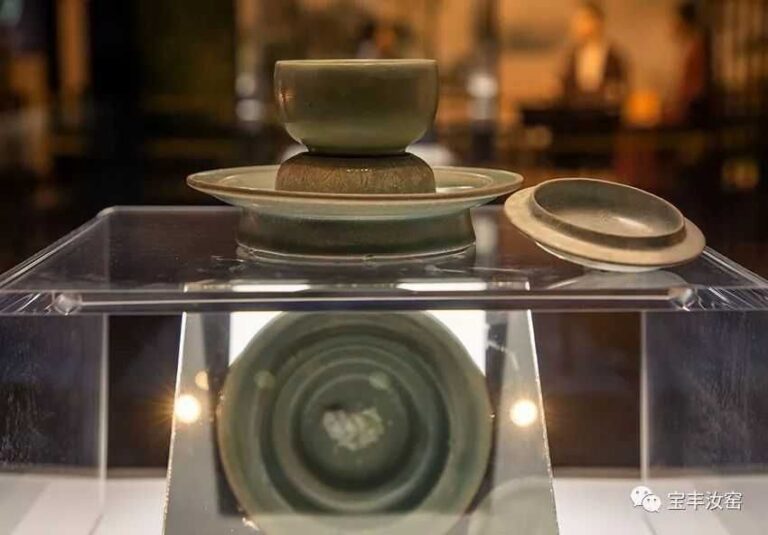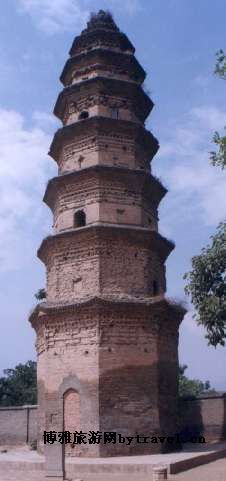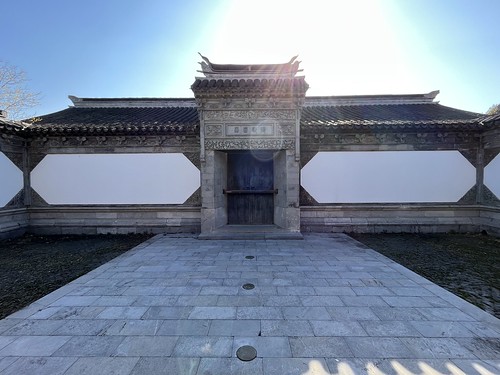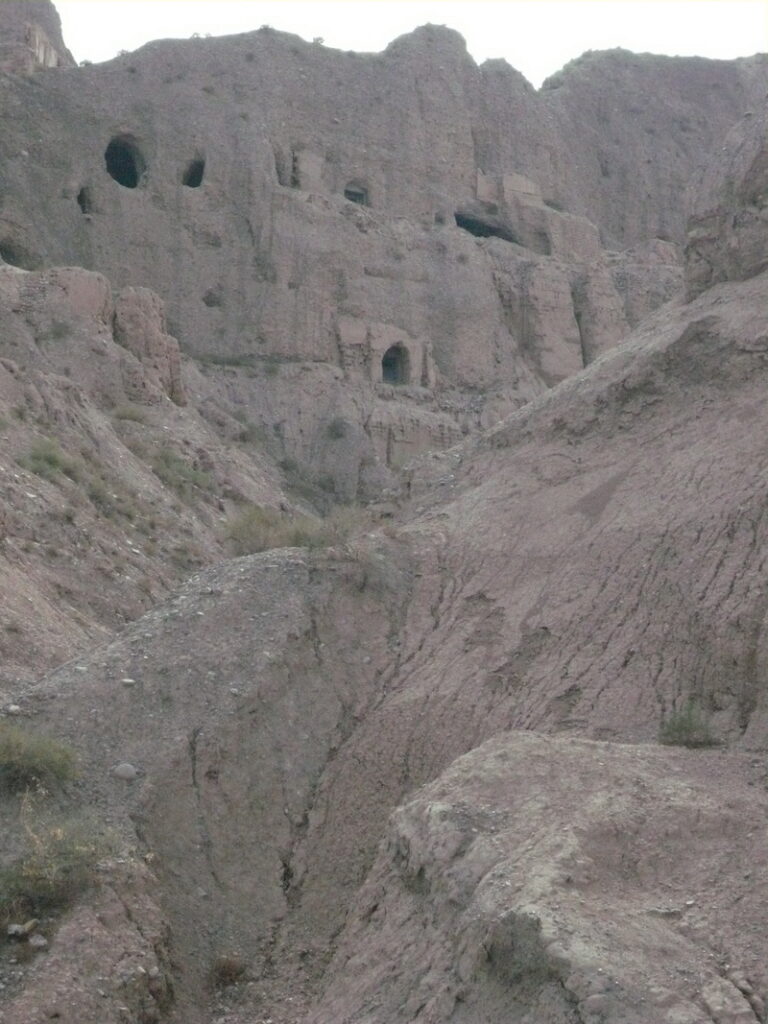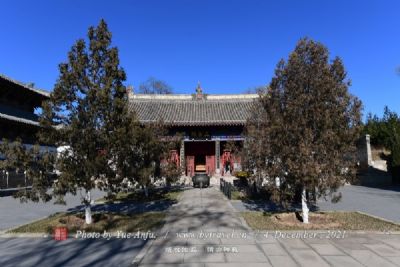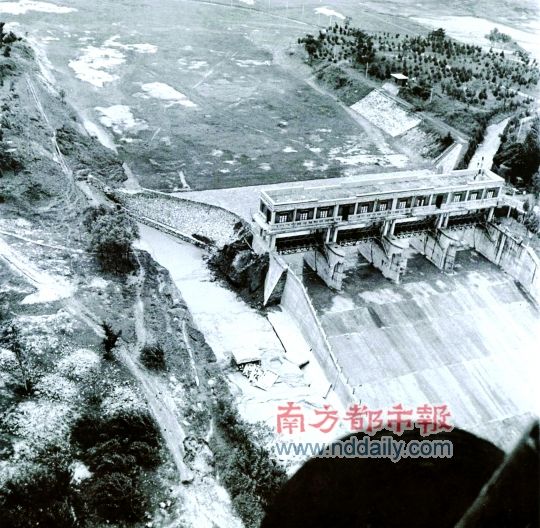Unveiling the Secrets of Baoji Qiaozhen Site: Your Ultimate Travel Guide
An Essential Guide to Visiting Baoji Qiaozhen Site
In This Guide
- An Essential Guide to Visiting Baoji Qiaozhen Site
- The Rich History of Baoji Qiaozhen Site
- Main Highlights: What to See at Baoji Qiaozhen Site
- Planning Your Visit: A Practical Guide
- Tickets, Hours, and Booking
- How to Get There
- Local Cuisine and Accommodation
- Frequently Asked Questions
- Final Thoughts on Your Trip
Nestled in the heart of Shaanxi province, the Baoji Qiaozhen Site is a captivating archaeological treasure that offers a glimpse into China’s ancient past. Known for its rich cultural heritage, Baoji has long been a pivotal location along the routes of trade and migration. The Qiaozhen Site, specifically, is a manifestation of this vibrant history, revealing the remnants of a settlement that thrived thousands of years ago, during the Neolithic period.
As you wander through the site, you’ll encounter a wealth of artifacts that tell the story of early human civilization in this region. Excavated tools, pottery, and remnants of ancient structures provide invaluable insights into the daily lives, social organization, and technological advancements of the communities that once inhabited this area. The site not only showcases the ingenuity of our ancestors but also serves as a reminder of the deep historical roots that underpin modern Chinese culture.
Visiting Baoji Qiaozhen is more than just a journey through time; it’s an opportunity to connect with the stories of those who came before us. Whether you’re an avid history buff, a curious traveler, or someone seeking to explore the depths of human civilization, the Qiaozhen Site promises an enriching experience. Prepare to be transported back in time, as you uncover the layers of history that have shaped this remarkable region.

Baoji Qiaozhen Site.
The Rich History of Baoji Qiaozhen Site
The Baoji Qiaozhen Site, located in the heart of Baoji City in Shaanxi Province, is a remarkable testament to the region’s rich historical tapestry. This archaeological site dates back to the Neolithic period, specifically associated with the Yangshao culture, which thrived around 5000 to 3000 BCE. The discovery of the Qiaozhen Site has provided invaluable insights into the early agricultural practices and social structures of ancient Chinese civilizations.
Archaeological excavations at Qiaozhen have unearthed a wealth of artifacts, including pottery, stone tools, and remnants of ancient dwellings. These findings not only highlight the technological advancements of the time but also reflect the daily lives and spiritual practices of the people who inhabited the area. The pottery, often adorned with intricate designs, showcases the artistic capabilities of the Yangshao culture and their connection to nature.
The site’s significance extends beyond its artifacts; it serves as a critical link in understanding the evolution of Chinese society from nomadic tribes to settled agricultural communities. The presence of storage pits and evidence of crop cultivation suggest that the inhabitants practiced agriculture, which was a pivotal shift in lifestyle during this era.
In addition to its archaeological importance, the Qiaozhen Site is part of a broader cultural narrative that encompasses the legendary origins of Chinese civilization. Baoji is often referred to as one of the birthplaces of the Chinese nation, with local legends attributing the founding of agriculture to the mythical Emperor Shennong, known as the “Divine Farmer.” This connection enhances the site’s cultural relevance, making it a focal point for those interested in China’s ancient history.
Today, the Baoji Qiaozhen Site stands as a monument to the ingenuity and resilience of early Chinese societies. It draws scholars and tourists alike, eager to explore the roots of one of the world’s oldest civilizations. By preserving and studying this site, we gain a deeper appreciation for the complex history that shaped modern China and the enduring legacy of its ancient peoples.

Baoji Qiaozhen Site.
Main Highlights: What to See at Baoji Qiaozhen Site
The Baoji Qiaozhen Site (桥镇遗址) is a remarkable archaeological treasure that offers a glimpse into the rich tapestry of ancient Chinese civilization. Here are some of the key highlights that make this site a must-visit for history enthusiasts and curious travelers alike:
-
Historical Significance: The Qiaozhen Site dates back to the Neolithic era, showcasing the early development of human civilization in this region. It is a vital link for understanding the transition from nomadic lifestyles to settled agricultural communities in ancient China.
-
Cultural Relics: Excavations at the site have unearthed a wealth of artifacts, including pottery, tools, and remnants of ancient dwellings. These findings provide invaluable insights into the daily lives, customs, and technological advancements of the people who inhabited this area thousands of years ago.
-
Architectural Insights: The layout of the site reveals the early architectural practices of the time. The foundations of ancient structures and the arrangement of living spaces highlight the sophistication of settlement planning and community organization during the Neolithic period.
-
Scenic Surroundings: Located in the stunning natural landscape of Baoji, the site is not only a place of historical importance but also offers picturesque views of the surrounding hills and valleys. This makes for a pleasant visit where one can appreciate both history and nature.
-
Educational Opportunities: The site is equipped with informational displays and guided tours, making it accessible for visitors to learn about the historical context and significance of the discoveries. This educational aspect enriches the experience, catering to all ages.
-
Cultural Events: Occasionally, the Qiaozhen Site hosts cultural events and exhibitions that celebrate the local heritage and ancient traditions. Participating in these events provides a deeper connection to the history and culture of the Baoji region.
Visiting the Baoji Qiaozhen Site is not just a journey into the past; it is an opportunity to understand the roots of Chinese civilization and appreciate the enduring legacy of its early communities. Whether you are a history buff or simply looking for an enriching travel experience, this site will leave you with lasting impressions.
Planning Your Visit: A Practical Guide
Practical Guide to Visiting Baoji Qiaozhen Site
Location and Accessibility
The Baoji Qiaozhen Site (桥镇遗址) is located in Baoji City, Shaanxi Province, nestled in the heart of China’s historical cradle. This archaeological site is easily accessible via public transport or by car, making it a convenient stop for travelers exploring the region. If you’re coming from the center of Baoji, it’s advisable to use local taxis or ride-sharing services, which are readily available.

Baoji Qiaozhen Site.
Best Time to Visit
The ideal time to visit the Baoji Qiaozhen Site is during the spring (April to June) and autumn (September to November) months. During these seasons, the weather is mild and pleasant, perfect for outdoor exploration. Summer can be hot, while winter temperatures may drop significantly, so plan accordingly.
Entrance Fees and Operating Hours
As of now, the site has no entrance fee, allowing you to explore its rich historical context without the worry of ticket costs. Operating hours typically run from 8:00 AM to 5:30 PM. It’s wise to check for any seasonal changes in hours or special events that might affect access.
What to Expect
The Qiaozhen Site is recognized for its significance in understanding the ancient civilizations that once thrived in this area. Visitors can explore the ruins, which showcase remnants of ancient architecture and artifacts that date back to the Han Dynasty and earlier. Interpretive signs are present to help travelers understand the historical context and significance of various structures.
Guided Tours
For those interested in a more in-depth experience, guided tours are available. These tours often include a knowledgeable guide who can provide insights into the archaeological findings and their relevance to Chinese history. It’s advisable to book these in advance, especially during peak tourist seasons.
Nearby Attractions
While visiting the Baoji Qiaozhen Site, consider exploring nearby attractions to enrich your experience:
– Baoji Bronze Ware Museum: A short drive away, this museum showcases an impressive collection of ancient bronze artifacts, offering a deeper understanding of the region’s historical craftsmanship.
– Qin Culture Square: Located within the same vicinity, this cultural square is perfect for leisurely walks and provides further context to the rich history of the Qin Dynasty.
– Yandi Cultural Park: Just a bit further, this park is dedicated to Yandi, a legendary figure in Chinese mythology, and features beautiful gardens and cultural exhibits.
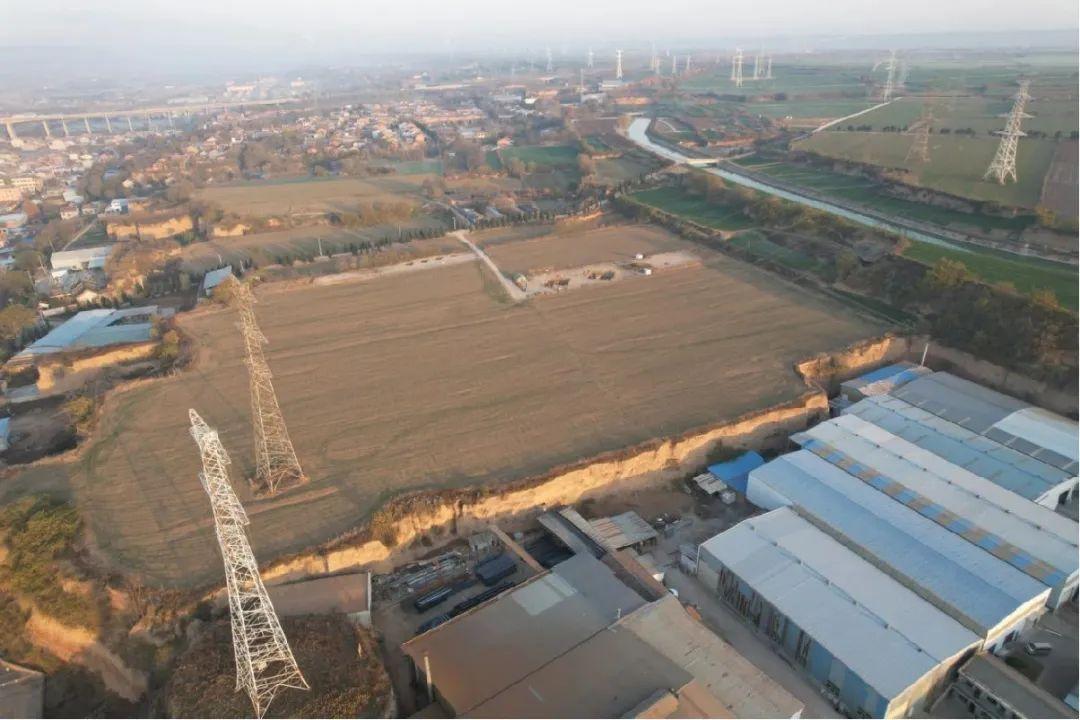
Baoji Qiaozhen Site.
Dining Options
After a day of exploration, you’ll want to refuel. There are various dining options near the Qiaozhen site:
– Local Shaanxi Cuisine: Be sure to try local specialties such as “Yangrou Paomo” (bread soaked in mutton soup) or “Saozi Noodles,” a dish made from hand-pulled noodles.
– Street Food Stalls: Experience the vibrant street food scene for quick bites and snacks that reflect the region’s culinary traditions.
Travel Tips
- Wear Comfortable Shoes: The site involves a fair amount of walking, so comfortable footwear is essential.
- Stay Hydrated: Bring water, especially during warmer months, to stay refreshed while exploring.
- Respect the Site: As a historical site, it’s important to maintain its integrity by not climbing on ruins or disturbing artifacts.
With its rich history and cultural significance, the Baoji Qiaozhen Site offers a unique glimpse into ancient Chinese civilization, making it a must-visit for history enthusiasts and curious travelers alike. Enjoy your visit!
Tickets, Hours, and Booking
When planning your visit to the Baoji Qiaozhen Site, it’s essential to be aware of the ticketing details to ensure a smooth experience.

Baoji Qiaozhen Site.
Ticket Information for Baoji Qiaozhen Site
Visitors to the Baoji Qiaozhen Site can purchase tickets on-site. The ticket prices are generally affordable, catering to both locals and tourists. Here are the specifics:
- General Admission: ¥30 (approximately $4.50 USD)
- Children and Seniors: ¥15 (approximately $2.25 USD)
- Group Discounts: Available for groups of 10 or more; prior arrangement is recommended.
Opening Hours
The site is open to the public from 9:00 AM to 5:00 PM, with the last entry at 4:30 PM. It’s advisable to arrive early to fully explore the site and its exhibits.
Booking Options
While tickets can be purchased at the entrance, it is also possible to book in advance through various travel platforms. Some platforms may offer discounts or packages that include guided tours, making your visit even more enriching.
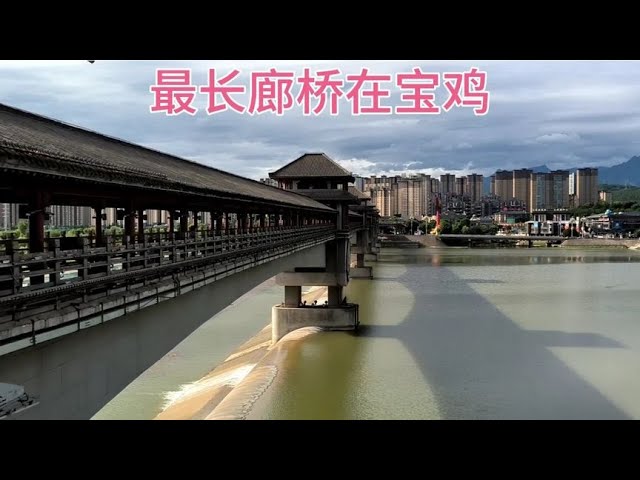
Baoji Qiaozhen Site.
Important Reminders
- ID Requirement: Bring a valid form of identification, especially if you’re eligible for discounts.
- Weather Considerations: Check the weather before your visit, as the site may have outdoor areas that could be affected by rain or extreme temperatures.
- Accessibility: The site is generally accessible, but it’s best to check in advance for any specific needs.
By keeping these details in mind, you can ensure your visit to the Baoji Qiaozhen Site is both enjoyable and hassle-free.
How to Get There
Getting to and around Baoji, particularly to the Qiaozhen Site, is quite manageable, thanks to the city’s well-developed transportation network. Whether you’re arriving by air, train, or car, you’ll find convenient options to reach this historical site.
Arriving in Baoji
By Air:
Baoji is served by the Baoji-Baotou Airport (also known as Baoji Airport), which is located about 50 kilometers from the city center. Flights connect Baoji with major cities like Beijing and Xi’an. After your flight, you can take a taxi or arrange for a shuttle service to reach the city center.
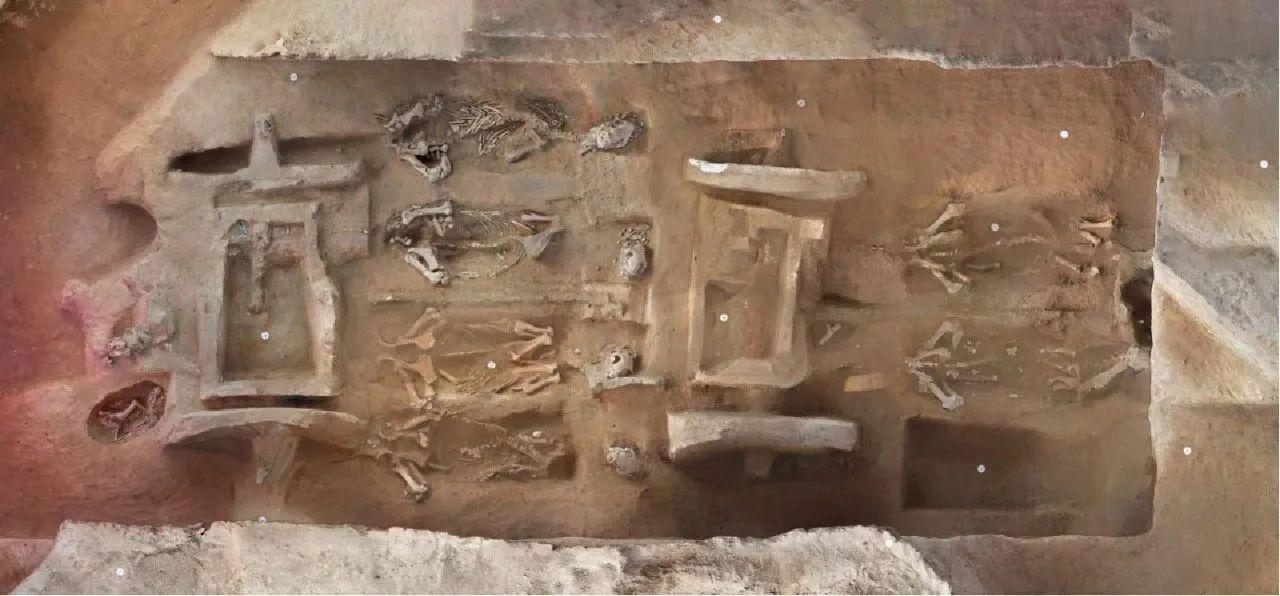
Baoji Qiaozhen Site.
By Train:
The Baoji Railway Station is a major hub in the region, with high-speed trains connecting it to cities such as Xi’an (approximately 1 hour away) and Chengdu. The train station is conveniently located in the city center, making it easy to access local transportation or taxis to your next destination.
By Bus:
Long-distance buses also operate from various cities to Baoji. The main bus station is situated near the railway station, offering regular services to nearby towns and attractions.
Getting to Qiaozhen Site
Once in Baoji, reaching the Qiaozhen Site is straightforward.
Public Transportation:
– Buses: Local buses frequently run from the city center to the Qiaozhen Site. Look for Line 7, which heads in that direction. Buses are inexpensive and offer a glimpse into local life.
– Taxis and Ride-Sharing: Taxis are readily available, and ride-sharing services like Didi are popular and convenient options. A taxi ride from the city center to the Qiaozhen Site typically takes about 30 minutes.
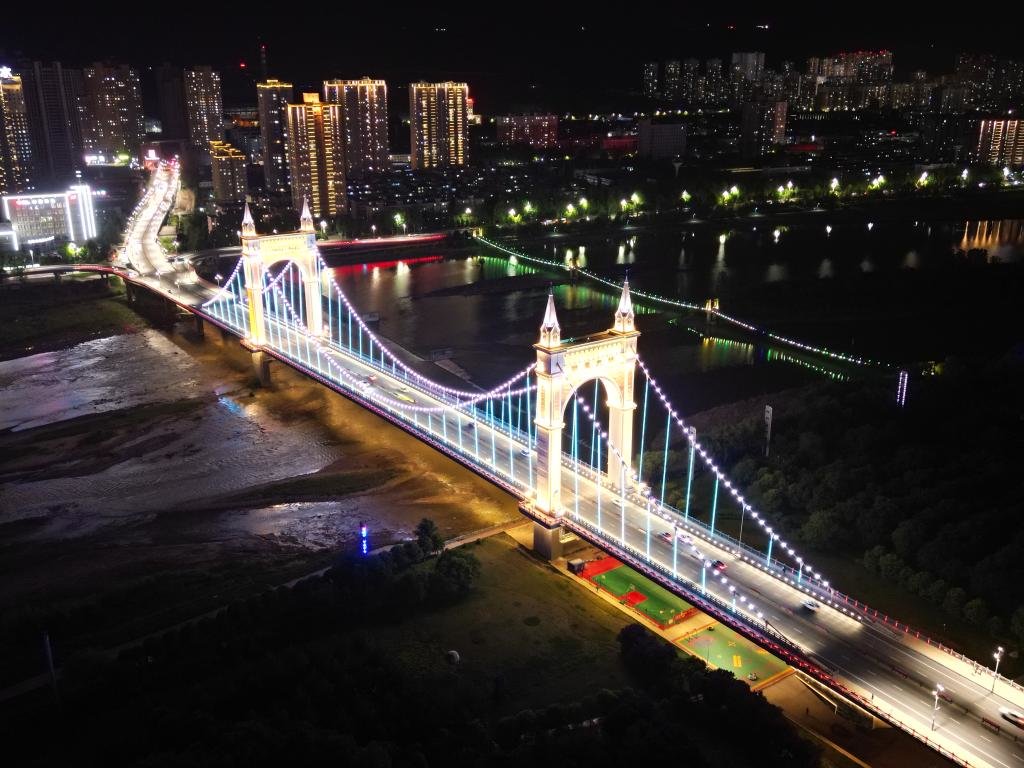
Baoji Qiaozhen Site.
By Car:
If you prefer to drive, rental car services are available in Baoji. Major roads leading to the Qiaozhen Site are well-marked, and the journey offers scenic views of the surrounding countryside. Parking facilities are available near the site.
Navigating Baoji
Once in Baoji, local transportation options are plentiful:
- Bicycles and E-Scooters: Many areas in Baoji are bicycle-friendly, and you can find e-scooter rentals for a more modern approach to exploring the city.
- Walking: Many attractions are within walking distance of each other, particularly in the downtown area, making it easy to explore on foot.
Tips for Travelers
- Language: While many signs are in Mandarin, English may not be widely spoken. Consider downloading a translation app or having a phrasebook handy.
- Cash: While mobile payments are widely accepted, having some cash is advisable, especially for small purchases or in more rural areas.
- Local Apps: Download local transportation apps for buses and taxis to make navigation easier during your stay.
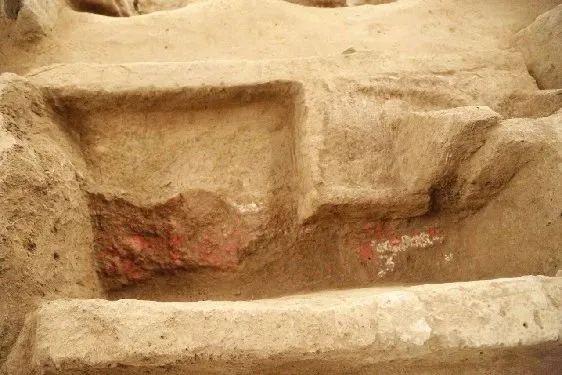
Baoji Qiaozhen Site.
With these transportation options at your disposal, visiting the Qiaozhen Site and exploring the city of Baoji will be an enjoyable and hassle-free experience.
Local Cuisine and Accommodation
When visiting the Baoji Qiaozhen Site, a hub of ancient Chinese civilization, you’ll find that the culinary delights and accommodation options in Baoji enhance your travel experience. This vibrant city, rich in history and culture, offers a range of local flavors and comfortable stays for every traveler.
Culinary Delights
Baoji is known for its delicious Shaanxi cuisine, which features bold flavors and unique cooking techniques. Here are some must-try dishes:

Baoji Qiaozhen Site.
-
Saozi Noodles (臊子面): A beloved local specialty, these hand-pulled noodles are topped with a savory sauce made from minced pork, vegetables, and chili oil. Many restaurants offer their own twist on this dish, making it a staple for visitors.
-
Roujiamo (肉夹馍): Often referred to as the Chinese hamburger, this dish consists of tender, slow-cooked meat stuffed inside a freshly baked flatbread. It’s perfect for a quick snack or a hearty meal.
-
Biangbiang Noodles (扯面): Known for their wide, thick texture, these noodles are often served with a spicy sauce and a variety of toppings, including vegetables and meat. The name “biang” itself is a complex character that reflects the dish’s rich cultural heritage.
-
Yangrou Paomo (羊肉泡馍): A comforting bowl of mutton soup served with chunks of bread. Diners break the bread into the soup, allowing it to soak up the flavors, creating a heartwarming meal.
For a true taste of Baoji, explore the Xifu Old Street (西府老街). This lively area features numerous food stalls and restaurants where you can sample local delicacies in a vibrant atmosphere. Be sure to try street snacks like fried dumplings and spicy skewers as you stroll through the bustling lanes.
Where to Stay
Accommodations in Baoji cater to a variety of preferences, from budget-friendly options to luxury hotels. Here are some recommendations:
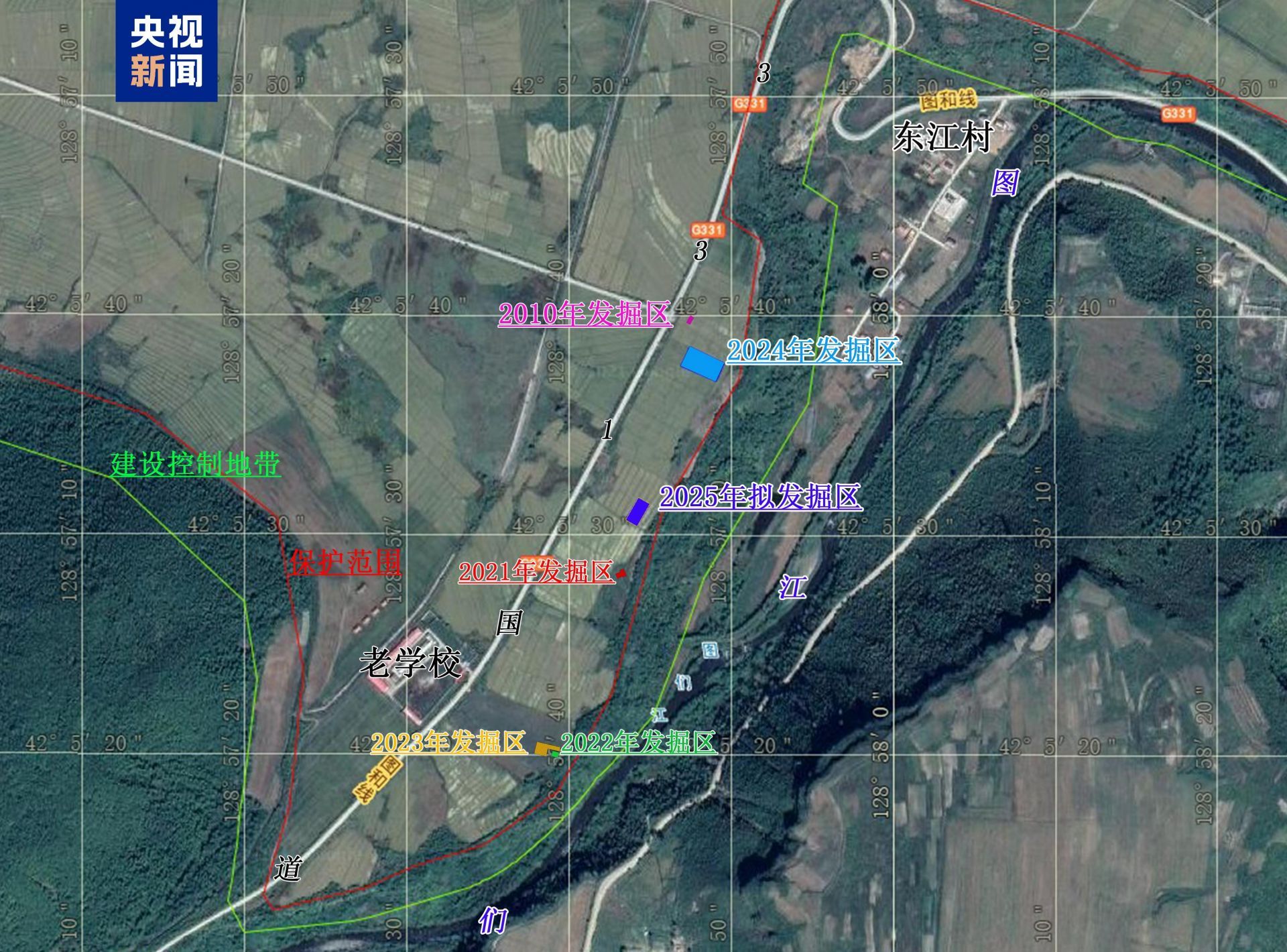
Baoji Qiaozhen Site.
-
Hilton Baoji: This modern hotel offers comfortable rooms equipped with all the amenities needed for a pleasant stay. Located near the city center, it provides easy access to local attractions and dining options. The hotel features a fitness center, a restaurant serving both local and international cuisine, and excellent service.
-
Baoji Sunshine Hotel: A great choice for budget travelers, this hotel offers clean and simple accommodations at an affordable price. It is conveniently located, making it easy to explore nearby sites, including the Baoji Qiaozhen Site.
-
Jinjiang Inn Baoji: Known for its consistent quality and reasonable rates, Jinjiang Inn provides comfortable rooms and a cozy atmosphere. The hotel includes a restaurant that serves breakfast and local dishes, ideal for starting your day before heading out to explore.
-
Qinling International Hotel: If you’re looking for luxury, this hotel offers elegant rooms and comprehensive facilities, including a wellness center and multiple dining options. Its central location makes it a convenient base for exploring the historical sites of Baoji.
No matter your taste or budget, Baoji’s food scene and accommodation options offer a delightful complement to the ancient history and culture waiting to be discovered at the Qiaozhen Site. Enjoy your culinary and cultural journey in this fascinating city!
Frequently Asked Questions
-
What are the visiting hours for the Baoji Qiaozhen Site?
The Baoji Qiaozhen Site is typically open from 8:00 AM to 5:30 PM. However, it’s advisable to check for any changes in operating hours prior to your visit. -
How do I get to the Baoji Qiaozhen Site?
The site is conveniently located in Baoji, and you can reach it by public transportation, including buses and taxis. If you’re driving, ample parking is available nearby. -
Is there an admission fee for the Baoji Qiaozhen Site?
Yes, there is usually an admission fee, but prices may vary. It’s best to check the latest information on ticket costs before planning your visit. -
What should I wear when visiting the Baoji Qiaozhen Site?
Comfortable shoes are recommended as you may do a fair amount of walking. Depending on the season, dress appropriately for the weather, as certain areas may be exposed to the elements. -
Are there guided tours available at the Baoji Qiaozhen Site?
Yes, guided tours are often available, providing insights into the historical significance of the site. You can inquire about tour options at the entrance or through local tourism offices. -
Can I take photographs at the Baoji Qiaozhen Site?
Photography is generally allowed, but be mindful of any restricted areas or guidelines to respect the site and its artifacts. -
What other attractions are nearby the Baoji Qiaozhen Site?
Other notable attractions include the Baoji Bronze Museum, the Yin Emperor Film and Television Base, and various parks and cultural sites that showcase the rich history of the region. -
Is the Baoji Qiaozhen Site suitable for children?
Yes, the site is family-friendly, and children can learn about ancient Chinese history in an engaging environment. However, parental supervision is advised, especially in more open or less-structured areas.
Final Thoughts on Your Trip
Exploring the Baoji Qiaozhen Site offers a unique glimpse into the ancient world, where history and culture intertwine. As one of the remarkable archaeological treasures in China, it stands as a testament to the rich heritage of the region. Visitors to this site not only discover the remnants of a vibrant past but also experience the beauty of Baoji’s landscapes and the warmth of its people.
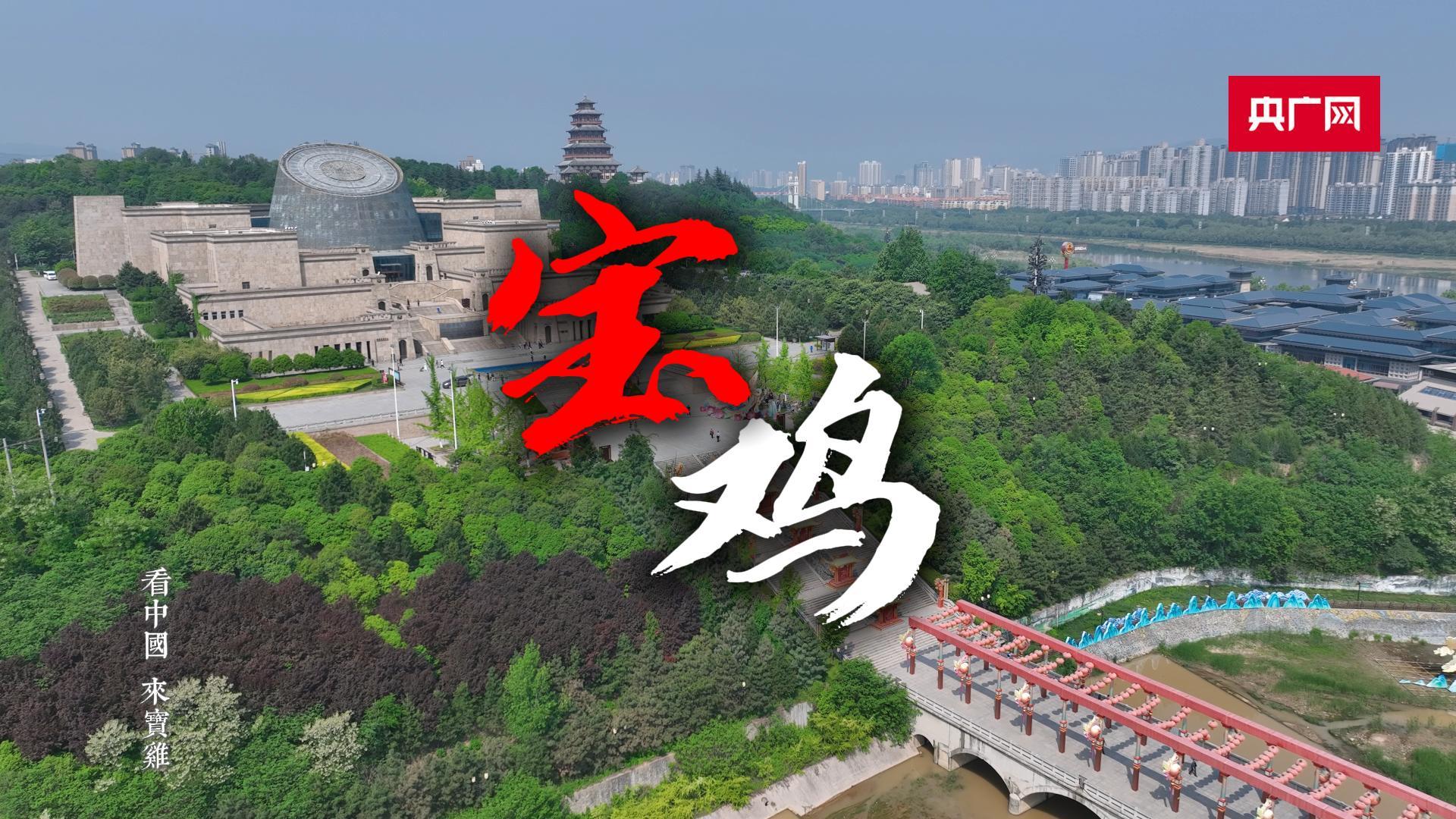
Baoji Qiaozhen Site.
Whether you are a history enthusiast, a culture seeker, or simply someone looking for a scenic getaway, the Qiaozhen Site provides an enriching experience that transcends the ordinary. With its fascinating artifacts and breathtaking surroundings, this destination invites travelers to connect with the essence of early Chinese civilization.
As you plan your journey, consider weaving this historical gem into your itinerary. The Qiaozhen Site is more than just a stopover; it is an opportunity to reflect on the legacy of those who came before us and to appreciate the cultural tapestry that continues to shape the present. Embrace the adventure, and let the echoes of history inspire your travels in Baoji!
